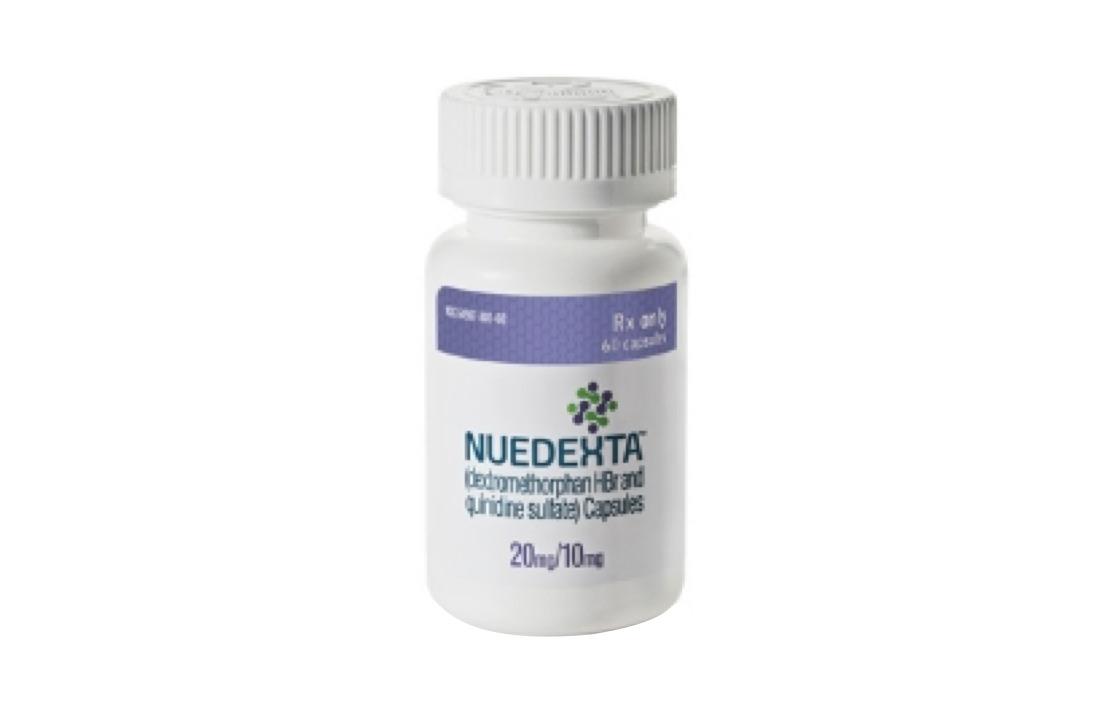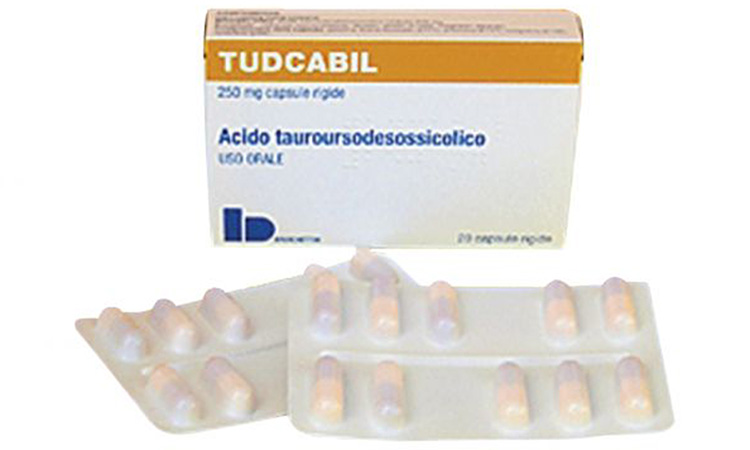Nuedexta (dextromethorphan HBr and quinidine sulfate) vs Tudcabil (tauroursodeoxycholic acid)
Nuedexta (dextromethorphan HBr and quinidine sulfate) vs Tudcabil (tauroursodeoxycholic acid)
Nuedexta is a combination medication consisting of dextromethorphan HBr and quinidine sulfate, primarily approved for the treatment of pseudobulbar affect (PBA), which is characterized by sudden and uncontrollable episodes of crying or laughing. Tudcabil, containing tauroursodeoxycholic acid, is a different kind of medication that is used for the treatment of cholestatic liver diseases, specifically to improve liver function in adults with primary biliary cholangitis (PBC). When deciding between these two medications, it is essential to consider the specific condition being treated, as Nuedexta is not indicated for liver diseases, and Tudcabil is not used for managing PBA.
Difference between Nuedexta and Tudcabil
| Metric | Nuedexta (dextromethorphan HBr and quinidine sulfate) | Tudcabil (tauroursodeoxycholic acid) |
|---|---|---|
| Generic name | Dextromethorphan hydrobromide and quinidine sulfate | Tauroursodeoxycholic acid |
| Indications | Treatment of pseudobulbar affect (PBA) | Treatment of biliary cholangitis |
| Mechanism of action | Dextromethorphan acts on the central nervous system to modulate the excitatory neurotransmitter glutamate, while quinidine increases the availability of dextromethorphan by inhibiting its metabolism. | Modulates bile acid pool and bile flow, has anti-apoptotic and anti-inflammatory effects. |
| Brand names | Nuedexta | Tudcabil |
| Administrative route | Oral | Intravenous |
| Side effects | Dizziness, nausea, vomiting, cough, peripheral edema, diarrhea, urinary tract infection, influenza, increased gamma-glutamyltransferase, and flatulence. | Pruritus, common cold, influenza, pyrexia, and nausea. |
| Contraindications | Patients taking monoamine oxidase inhibitors (MAOIs) or within 14 days of stopping MAOIs, patients with a history of quinidine, quinine, or mefloquine sensitivity, patients with heart failure or a prolonged QT interval, and patients with complete atrioventricular (AV) block without implanted pacemaker or at risk of complete AV block. | Patients with hypersensitivity to tauroursodeoxycholic acid or any of the excipients. |
| Drug class | Central nervous system agent / Antiarrhythmic | Bile acid |
| Manufacturer | Avanir Pharmaceuticals | Albireo Pharma, Inc. |
Efficacy
Efficacy of Nuedexta in ALS
Nuedexta, a combination of dextromethorphan hydrobromide and quinidine sulfate, is primarily approved for the treatment of pseudobulbar affect (PBA). However, studies have investigated its off-label use in Amyotrophic Lateral Sclerosis (ALS), a progressive neurodegenerative disorder. In ALS, Nuedexta has been evaluated for its potential to manage symptoms related to PBA, which are common in ALS patients. Clinical trials have shown that Nuedexta can significantly reduce the frequency and severity of PBA episodes in ALS patients, improving their emotional lability and quality of life.
While the primary use of Nuedexta in ALS is for PBA, there is interest in its potential neuroprotective effects. The dextromethorphan component of Nuedexta is an NMDA receptor antagonist, which may help in reducing glutamate excitotoxicity, a proposed mechanism in ALS pathology. However, the evidence for a direct impact of Nuedexta on the progression of ALS is limited and requires further investigation to establish its efficacy in this regard.
Efficacy of Tudcabil in ALS
Tudcabil (tauroursodeoxycholic acid) is a bile acid that has been explored for its potential therapeutic effects in ALS. The efficacy of Tudcabil in ALS has been the subject of clinical research due to its anti-apoptotic and neuroprotective properties. Preclinical studies have suggested that tauroursodeoxycholic acid can reduce neuronal cell death and mitigate some of the cellular stress responses associated with ALS. However, the translation of these findings into clinical benefits for ALS patients remains to be conclusively demonstrated through large-scale clinical trials.
Initial clinical trials have provided some evidence that Tudcabil may help in slowing the progression of ALS and improving certain markers of neuronal health. Nevertheless, the data on Tudcabil's efficacy in ALS is still emerging, and more research is needed to confirm its benefits and to understand the optimal dosing and timing of treatment in the context of this disease. As of the current state of knowledge, Tudcabil is not approved for the treatment of ALS, and its use for this condition would be considered off-label.
Regulatory Agency Approvals
Nuedexta
-
Food and Drug Administration (FDA), USA

Tudcabil
-
Italian Medicines Agency (AIFA), Italy

Access Nuedexta or Tudcabil today
If Nuedexta or Tudcabil are not approved or available in your country (e.g. due to supply issues), you can access them via Everyone.org.
How it works

Make an enquiry
Choose the medicine you want to buy, answer a couple of questions, and upload your prescription to speed things up. We’ll get back to you within 24 hours.


Make an enquiry
Choose the medicine you want to buy, answer a couple of questions, and upload your prescription to speed things up. We’ll get back to you within 24 hours.


Breeze through the paperwork
We'll guide you through the required documents for importing unapproved medicine, ensuring you have all the necessary information.


Get a personalized quote
We’ll prepare a quote for you, including medicine costs and any shipping, administrative, or import fees that may apply.


Receive your medicine
Accept the quote and we’ll handle the rest - sourcing and safely delivering your medicine.

Some text on this page has been automatically generated. Speak to your physician before you start a new treatment or medication.
Let's talk
If you have any questions, call us or send us a message through WhatsApp or email:
Contact us




